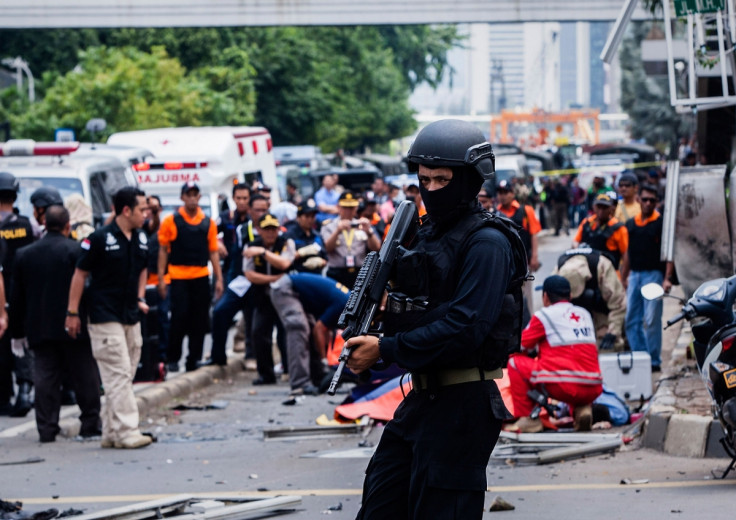Jakarta attacks: Isis plans 'distant caliphate' in Indonesia

On 14 January Indonesia's capital city of Jakarta was rocked by a series of bomb blasts and gun battles with police. At least six people, including four gunmen, are believed to have been killed.
Although no group has claimed responsibility, police have confirmed that Islamic State (Isis) had made a number of specific threats towards Indonesia recently. The Jakarta bombings come one month after Australia's Attorney General George Brandis warned that IS (Daesh) was seeking to establish a "distant caliphate" in Indonesia, which is the world's largest Muslim country.
Speaking to an Australian newspaper, Brandis said: "IS has ambitions to elevate its presence and level of activity in Indonesia, either directly or through surrogates. You've heard the expression the 'distant caliphate'? IS has a declared intention to establish caliphates beyond the Middle East, provincial caliphates in effect. It has identified Indonesia as a location of its ambition."
Follow our ongoing coverage of the Jakarta attacks: Six dead as suicide bombs and running gun battles rock Indonesian capital
Brandis's concerns were downplayed by Greg Fealey, an expert in Islamism and Indonesian politics from the Australian National University. Fealey said that he was "sceptical" of Brandis's warning as he believed that most scholars examining the IS position in south-east Asia did not think the terror group have plans for Indonesia.
"We've not seen IS sending fighters back to Indonesia or Malaysia to undertake terrorist operations," said Fealey. "Nor has there been a statement from IS centrally, indicating they would seek to establish a caliphate in south-east Asia or Indonesia."
In the last few years approximately 150 - 200 Indonesians are believed to have travelled to Syria to join the terrorist group. A number of them have since returned to Indonesia, prompting police officials to warn that they could be preparing an attack on Indonesian soil. With the threat of radicalism, the country is on high alert as a small number of militants are believed to be operating.
In December 2015, six members of an alleged IS network were arrested by Indonesian police over planned attacks, including a suicide bombing orchestrated to be carried out on New Year's Eve. The arrests were conducted during a series of raids by Indonesia's counter-terrorism unit and included the arrest of a teacher from an Islamic boarding school, as well as a student who was allegedly being "groomed" for the planned attacks. At the time, Indonesia's security minister, Luhut Panjaitan, said that at least 800 Indonesians had travelled to the Middle East to join IS.
© Copyright IBTimes 2024. All rights reserved.






